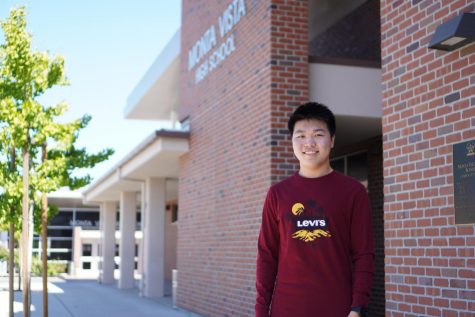Working for the future
Students craft their lives based on dream jobs – is it worth it?
February 4, 2019
Sparkling chandeliers. Lush sofas and curtains. A profitable job. A stable family. This is the life that many wish and plan for throughout the course of their lives, especially MVHS students.
In a competitive learning environment such as MVHS, students often take part in many activities (sports, clubs and extracurriculars) in order to pursue a dream career. While students have numerous reasons for pursuing these activities, many are motivated by the prospect of an ideal future, featuring a profitable, respected job. This begs the question: are students too focused on obtaining a “dream job” which will supposedly provide them with a happy future and not focused enough on enjoying the present?
MVHS offers a variety of STEM courses, such as biology, chemistry, physics, physiology and STEM research. As more and more students have selected STEM courses, MVHS has increased capacity for several of these classes. Recently, MVHS has begun to offer AP Computer Science Principles as well to provide more options for students pursuing STEM. Evidently, there is a large focus on STEM at MVHS, and not without reason. According to a 2019 US News report, 61 out of the 100 best jobs in the U.S. are STEM-related, based on numerous aspects including median salary, employment rate, future job prospects, stress levels and work-life balance. Among the top of the list are software developer, statistician, dentist and orthodontist.
But while enduring numerous classes and extracurricular activities in preparation for the future, many students seem to disregard their current lives. Students choose to tax their social lives and physical or mental health in hopes that it will pay off in the future. It’s not uncommon to hear MVHS students “misery gambling,” comparing and almost bragging about the stress they endure, whether it comes in the form of excessive tests and assignments, academic and sports competitions or even a lack of sleep.
However, it’s hard to tell whether this mentality will truly pay off. According to Josh Bersin, founder of a HR consulting firm, expertise in one field is constantly changing, requiring ongoing learning for career success.
“Just as COBOL programmers had to learn C++ and Java, administrative assistants have switched from typewriters and dictation machines to PCs and voice memos, assembly-line workers have had to learn to operate robots, and designers have moved from sketch-pads and clay models to touchscreens and 3D printing,” Bersin said.
All the effort many students put into working towards a single, desired career path may lead to unexpected results. In the future, the most sought-after jobs may look completely different from how they do today. David Deming, associate economics professor of Harvard University, concludes that soft skills, such as sharing, empathy, negotiation and cooperation will be just as important, if not more important than technical skills in the future. According to Deming, jobs are increasingly dependent upon both soft skills and a basic technical skillset. In other words, students will be better off learning the technical fundamentals in a field and working to develop their social skills rather than spending all their effort expanding their technical knowledge.
Clearly, job popularity and promising careers are constantly fluctuating. If students spend all their effort training in one technical field, sacrificing their abilities to develop socially and personally, they may not meet their anticipated success. Instead, MVHS students should find a balance, choosing courses and extracurriculars that genuinely interest them as well as investing plenty of time developing soft skills in order to be truly successful in the future.


















